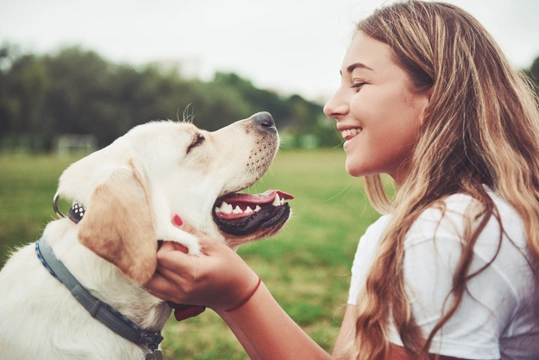
How to Be Your Dog’s Best Friend: Top 9 Tips
Building a strong bond with your dog is key to a happy, fulfilling relationship. Whether you have a playful puppy or an older rescue, becoming your dog's best friend involves patience, kindness, and understanding their individual needs.
Dogs share many common traits, such as enjoying food and playtime, but each dog has unique preferences. Discovering these can make your relationship richer and training more effective.
Here are nine essential ways to strengthen your bond and be your dog's true best friend:
1. Be Kind and Patient
If your puppy has a mishap like peeing indoors or a rescue chews furniture, remember they're not being naughty or spiteful. They simply don’t understand. It’s your loving patience and gentle guidance that teaches them what you expect. React with kindness and show them appropriate behaviours rather than punishment.
2. Use Positive Training Methods
Modern training focuses on rewarding desired behaviours to encourage them to repeat, rather than correcting mistakes harshly. When training is fun for your dog and centres on success, it strengthens your connection and makes learning enjoyable for both of you.
3. Be Your Dog’s Safe Place
You are your dog’s guardian and sanctuary. When introducing a puppy or rescue to their new surroundings, be encouraging but sensitive to their fears. Myths say you shouldn’t comfort scared dogs, but they need reassurance from you. Offer calm, gentle support when they seek it.
4. Discover Your Dog’s Favourite Activities
Meet your dog’s natural instincts with suitable outlets. Sighthounds love chasing games like fetch or flirt poles, retrievers delight in retrieving, herding breeds enjoy ball control games, and terriers benefit from digging areas. Some dogs enjoy shredding toys, so providing safe shredding options also enriches their lives and reduces damage to your belongings.
5. Learn to Read Your Dog’s Communication
Dogs communicate largely through body language. Learning to recognise their posture, facial expressions, and signals will help you understand their feelings and needs better. As communication is the basis of any strong relationship, paying attention to these cues improves your bond significantly.
6. Hand Feed Your Dog
Hand feeding meals creates a wonderful mental workout and a strong connection. By feeding your dog one piece at a time, you turn mealtimes into bonding and training opportunities. This method encourages focus and responsiveness, benefiting overall behaviour and engagement.
7. Spend Quality Time Together
Regardless of your busy schedule, make time for your dog where they have your full, undivided attention. Whether playing, training, or simply relaxing, these moments solidify affection and trust.
8. Engage in Trick Training for Fun
Trick training offers a playful, pressure-free way to strengthen your relationship. Learning fun new tricks challenges your dog mentally and deepens understanding between you, supporting more serious training like recall or loose-lead walking.
9. Have Fun Adventures and Sniffaris
Dogs love exploring new environments. Taking your dog on safe adventures where they can take their time to sniff and investigate (a "sniffari") enriches their sensory experience and makes you their favourite companion.
For further expert training advice, visit dog coach Vicky Carne's website, which offers a wealth of practical guidance to nurture your bond and skills.
Remember, becoming your dog’s best friend is a journey of love, patience, and shared joy. It’s about understanding their nature, celebrating their individuality, and providing a compassionate guide through life.



